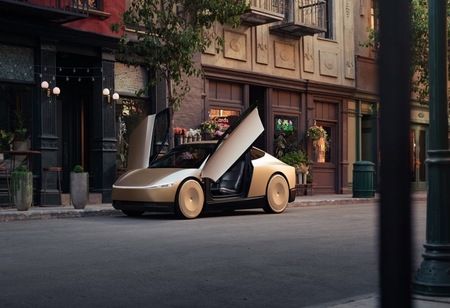
Tesla to Launch robotaxi Service Tentatively on June 22


Tesla expects to launch its long-anticipated robotaxi service tentatively on June 22, CEO Elon Musk said. The timeline for the launch in Austin, Texas, may change as Tesla is exhibiting heightened caution regarding safety, according to Musk's post on X. Musk also posted a video featuring a driverless black Model Y SUV undergoing tests on public streets in Austin. Tesla aims to generate a significant portion of its future revenue through robotics and artificial intelligence.
Musk has emphasized that the introduction of driverless vehicles is crucial for Tesla's future growth and valuation, asserting that robots and autonomous cars could elevate Tesla's market worth to at least $30 trillion. The situation is critical for Tesla, as its primary business of producing and selling electric vehicles faces challenges due to weak consumer demand and intensified competition from Chinese electric vehicle manufacturers like BYD.
"This represents a significant undertaking for Musk and Tesla," noted Wedbush analysts led by Dan Ives in their research report, since "most of the potential valuation growth for Tesla moving forward hinges on the success of its autonomous vision, particularly with this important launch in Austin."
They project that the AI and self-driving opportunity could be valued at no less than $1 trillion for Tesla. In an optimistic scenario, Tesla could achieve a market capitalization of $2 trillion by the close of 2026, they indicated.
Tesla's robotaxi competes with Alphabet's Waymo in the domestic market, which introduced the service in 2020 and operates in multiple cities, including San Francisco and Austin.
Also Read: How Tensions Grew Worse between Elon Musk and Donald Trump
Tesla's progress in robotaxi development has fallen behind that of its Chinese counterparts. The "Big Three" of China's autonomous driving sector, Baidu's Apollo Go, WeRide, and Pony AI, have already launched robotaxi services in China and are actively expanding into the Middle East with plans for global operations.
Currently, China's robotaxi fleet comprises around 1,700 vehicles. Despite the increasing competition, Wedbush believes that Tesla, due to its unparalleled scale and global reach, has the potential to dominate the autonomous market and license its technology to other automotive companies in the U.S. and globally.